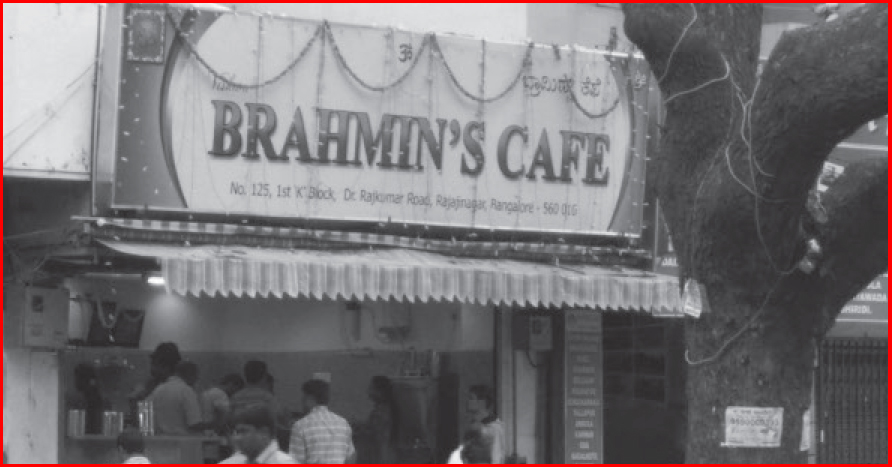Dr. K.Veeramani, President, Dravidar Kazhagam
Does he not know the difference between vama and jati?
The judge should know that the name ‘Brahmanal’ belittles others as sudras
let us go to people’s court before the supreme court
The following is the statement made by Asiriyar Dr. K.Veeramani, on the judgement given by the Madurai Bench of the Madras High Court, justifying the display of the word Brahmanal in the name board of a hotel
Erroneous Judgment
A hotel at Srirangam, Trichy, conducted by a Brahmin, has the name board that carries the word ‘Brahmanal’ underscoring the discrimination on the basis of varna and openly displaying caste fanaticism. In spite of a cordial request to the proprietor to change the name ‘Brahmanal Cafe’, he adamantly refused to oblige, provoked by some Brahmin outfits. As a result the Dravidar Kazhagam, along with some likeminded organizations carried on a non-violent picketing in front of the hotel. The AIADMK Government not only arrested and imprisoned them but also unleashed legal proceedings against them. Those people, numbering 112, filed a quash petition in the High Court. Justice Mr.G.R.Swaminathan after having gone through the case, has observed in his judgement,
“Section 19(1)A and 19(1)G have given to the proprietors the right to name their shops as per their liking, and it is exercising this right that the proprietor has named his hotel ‘Sri Krishnayyar Paramparia Brahminical Cafe’. Legal proceedings can be instituted against the hotel if untouchability is observed or entry is restricted to selected castes, but no such practice is observed in this hotel.
In Madurai there are many hotels like ‘Konar Mess’ or ‘Mudaliar Idli Kadai’, displaying caste names. On road side there are bakeries named as ‘Iyengar Bakery’. In Puducherry there is ‘Reddiyar Mess’.” There is nothing wrong, the judge observed, in hotels bearing caste names. This judgement is not merely erroneous. It justifies and encourages the display of varnasrama discrimination establishing the superiority and congenital arrogance of the Brahmins.
The Example Cited by Periyar
Periyar started an agitation in 1956 for the removal of the word ‘Brahmanal’ from Murali’s Cafe, Tiruvallikeni, Madras by blackening the word with coaltar. This agitation, which assumed statewide proportion and which finally made many people including the owner of Murali’s Cafe change their position and remove the term ‘Brahmanal’ from the name board.
Which person with conscience will refuse to accept that the owner of the cafe at Srirangam is inspired by a desire to establish his superiority by birth over the rest of the people?
When asked why the opposition to the word ‘Brahmanal’ Periyar gave a suitable example. “Suppose there are four houses in a street, and one of them displays the board. ‘This is the house of a chaste woman,’ what will people think of the occupants of the other houses? If one person proclaims that he is a Brahmin, does he not imply that the others are sudras, people of a lower birth? Sudra means ‘the son of a prostitute.”
(Manu Smriti, Chapter 8, Verse 415)
Varna is different from jati, asserts Sankaracharya. To prove that the argument of the Hon’ble Justice is wrong, we can find proof in ‘Deivathin Kural’ (Voice of God) compilation of sermons by Kanchi Chandrasekara Saraswati, greatly revered by the judge and his ilk, which differentiates varna from jati. Varanasrama places Brahminism on the topmost position. Brahmins have many jatis like Ayyar, Ayyangar, Sastri, and Sarma.
Sudras have jatis like Konar, Mudaliar and Reddiyar. Names like Konar Mess, Reddiyar Mess and Mudaliar Idli Kadai pointed out by the judge are the shortened forms of the names of the owners with their caste names appended. (Even this practice is not acceptable to us). But these names do not advertise the superiority of their caste.
Against the Judgment of the Supreme Court
Further, the judgement pronounced by the Hon’ble judge goes against a Supreme Court Judgement delivered in 2010. Is not the High Court bound by the decision of the Supreme Court? If the High Court gives a judgement in violation of the Supreme Court’s decision does it have validity? This can be clarified only through an appeal.
In State of Uttar Pradesh Vs. Ram Sajivan, AIR 2010 S.C. 1738, the judges have observed, “It is absolutely imperative to abolish the caste system as expeditiously as possible for the smooth functioning of the Rule of law and Democracy in our Country”.
How can a stand be taken against this dictum while giving a judgment in the High Court?
Caste engenders differences between people – it is the illegitimate child of varna. Any judgment must try to exterminate the existing differences between people. How can a judgment give legal sanction to caste, based on birth, which is against all canons of equality? Does not the judgment imply the need for renewing the agitation against the nomenclature of ‘Brahmanal Hotel’, launched by Dravidar Kazhagam under the dictat of Periyar 60 years ago? Whither is the country heading?
Let us approach People’s Court, Before Supreme Court
Have the Supreme Court and the High Courts, ever taken the stand that the fundamental rights enshrined in the Constitution are absolute rights? The practice has always been to impose reasonable restrictions on them.
Even religious freedom (Articles 25 & 26) is subjected to the principles of public order and health.
The Government of Tamil Nadu under MGR has issued an order removing caste appellations from street names and the order is still in force. How can using caste name in the name of a hotel be justified? This is a complex human rights problem involving many legal implications.
The appeal against this judgement will not only be made in the higher court, but also in the people’s court.





